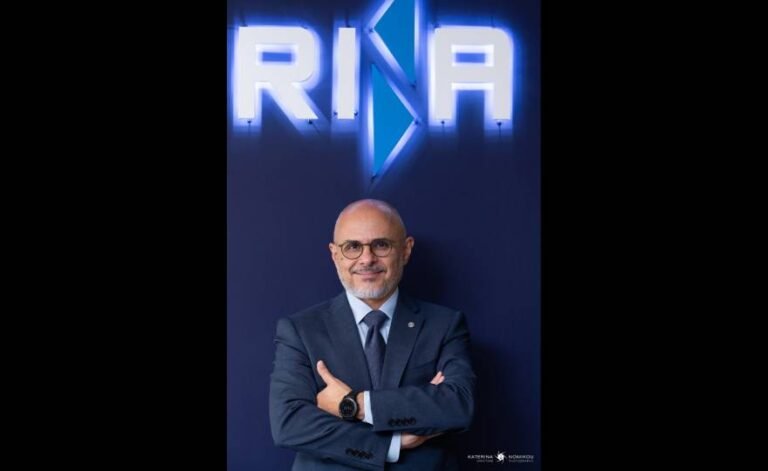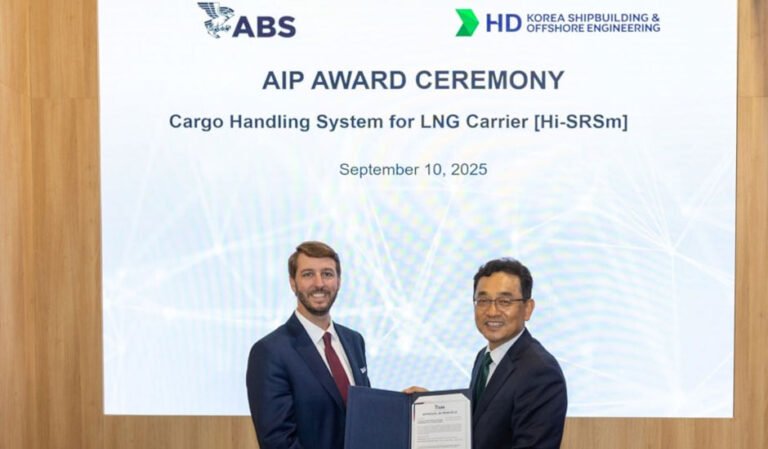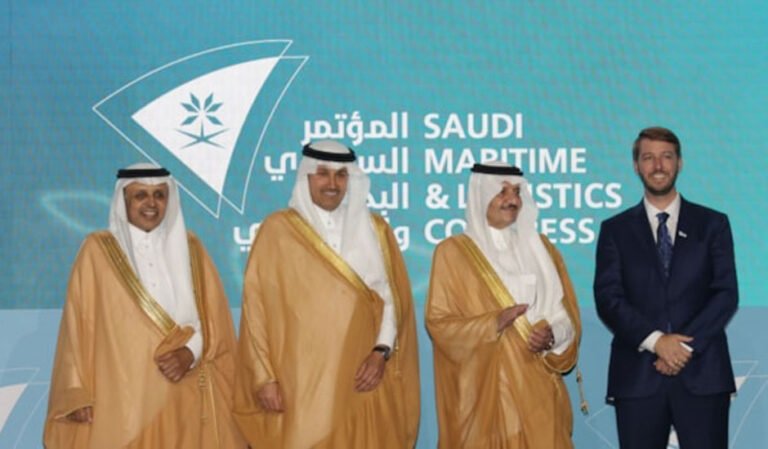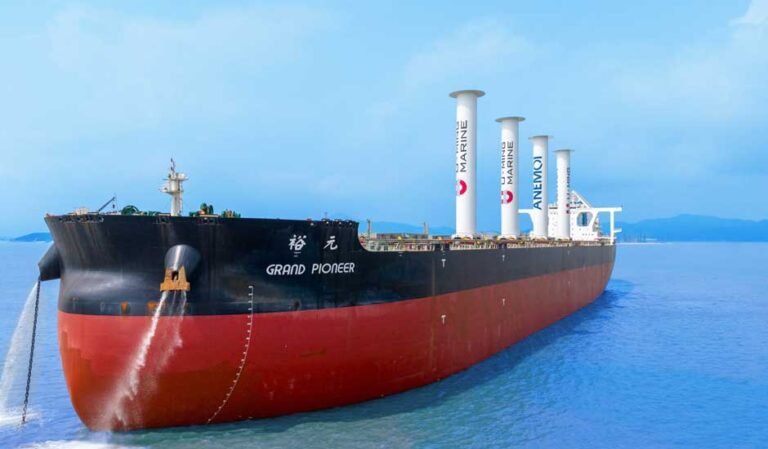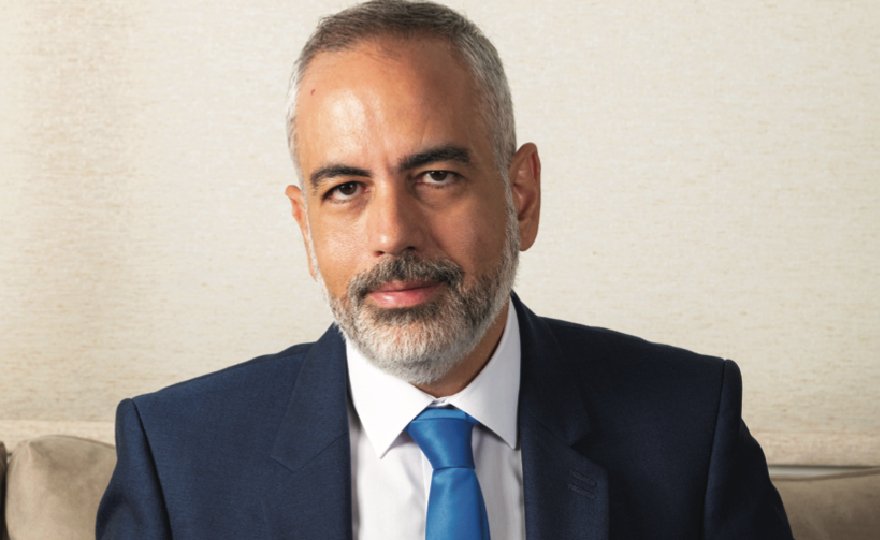
“A maritime nation like Cyprus must have a clear orientation for the future development of the shipping sector in order to ensure its sustainable future.
We are developing a new strategic process. Our new “SEA” approach is based on three pillars: Sustainable, Extrovert, Adaptable. It is about a continuous, interactive and systematic approach aiming to implement the vision. It will be accompanied by a number of concrete sustainable actions to ensure a sustainable future for Cyprus shipping, stated Mr. Vassilios Demetriades, Cyprus Shipping Deputy Minister to the President in his interesting interview in NAFS magazine. The full interview of Mr. Vassilios Demetriades has as follows:
Shipping Deputy Ministry (SDM) of Cyprus was established on 1st of March 2018. How do you think this landmark decision of the Government of Cyprus contributed to the development of Cyprus shipping?
The Government’s decision to establish the Shipping Deputy Minis- try demonstrates the great importance that Cyprus is placing to the shipping sector and underlines our commitment and determination to further develop Cyprus to a quality and sustainable maritime center. Undoubtedly, in the three and a half years of operation of the Shipping Deputy Ministry, important steps have been taken towards this direction.
Mr Demetriades, you have been appointed as the new Deputy Minister of Shipping to the President last July following a cabinet reshuffle. What are the key priorities you have set during your term?
A maritime nation like Cyprus must have a clear orientation for the future development of the shipping sector in order to ensure its sustain- able future. We must also set the ground for Cyprus to be a significant and influential actor leading positive change in global shipping.
Towards this direction we are about to adopt a long-term strategic vision for Cyprus shipping which is the outcome of an intensive consultation, spanning several months, involving both the global and local shipping industry and of an internal brainstorming with our team at the Shipping Deputy Ministry.
We are developing a new strategic process. Our new “SEA” approach is based on three pillars: Sustainable, Extrovert, Adaptable. It is about a continuous, interactive and systematic approach aiming to implement the vision. It will be accompanied by a number of concrete sustainable actions to ensure a sustainable future for Cyprus shipping.
Recently Shipping celebrated the International Day of the Seafarer. Tell us about the important role of seafarers and how Cyprus shipping will continue to act as a social responsible maritime nation with concrete actions for seafarers’ welfare.
We often say that seafarers are invisible heroes keeping supply chains intact. We feel responsible to make seafarers visible by recognizing their contribution and showing our respect through concrete actions. Cyprus was one of the first countries worldwide that recognized seafarers as key workers and introduced practical measures for crew changes. Since May 2020, over 25000 seafarers have been repatriated or have been able to return to work through Cyprus. In February 2021, Cyprus presented a practical approach and a concrete proposal for a global vaccination program for seafarers adopted in the form of an ILO Resolution.
The Cyprus government has also presented a detailed National
Plan to provide COVID-19 vaccinations to over 40,000 seafarers on Cyprus-flagged, irrespective where ships are, and Cyprus-managed vessels, initially when calling at ports or anchorages in Cyprus, which is currently underway. To date, more than 6500 seafarers have been vaccinated in Cyprus and families continue to benefit from the advanced approach and ongoing support from Cyprus Shipping Deputy Ministry. We are also exploring the possibility of Cyprus becoming a vaccination hub for all visiting seafarers, as a further step to safeguard seafarer welfare.
What are the challenges facing shipping, especially in relation to the green transformation, and how will Cyprus and Greece work together to face these challenges?
The green transformation is one of the greatest challenges. There is
a clear need to intensify efforts to ensure that shipping contributes meaningfully to climate change. At the same time, it is important to ensure that the sector maintains its competitiveness and its strategic importance for Europe. We will approach all the new legislative initiatives constructively, recognizing that there is a higher level of ambition in the EU. At the same time, it is important to emphasize that shipping is intrinsically global and when it comes to climate change mitigation there are no borders. In this respect, we should work for a legislative framework that is scalable and adjustable to any future global solution within the framework of IMO.
What are the latest developments regarding the efforts for the sea passenger connection between Greece and Cyprus? What do we expect in the near future?
The Cyprus-Greece Passenger Maritime Link ceased to operate in
2000 and the market conditions challenged the viability of the link and operators are reluctant to invest on this route. Despite the difficulties, the Cyprus Government is determined to reestablish this service with a national subsidy of around 5mln euros per year. Towards this direction, we are exploring ways to formulate a more attractive framework in accordance with the EU rules for Services of General Economic Interest and we will soon launch a new tender procedure in order to establish the link by late Spring 2022, providing alternative connectivity to our citizens whilst exploring a new segment for tourists and travelers to/ from Cyprus and Greece.
What actions are being taken by the Shipping Deputy Ministry of Cyprus to pass on the passion and love for the sea to the new generation?
A prerequisite for a sustainable shipping cluster is to create a culture for seafaring and maritime professions in Cyprus. We are an island, a maritime centre with a competent and reputable shipping industry. It
is an absolute must to change the mindset of young people in order to acknowledge and promote the blue growth potential. We have recently launched a campaign www.seayourhorizon.com and a number of smart initiatives targeting students at primary and secondary schools to learn about shipping and blue economy studies and professions. We also need to bring closer the academic institutions with the shipping industry to develop a curriculum that reflects new trends of shipping, while supporting research and innovation towards the green and digital transformation of the sector.
As part of our efforts to bring closer our citizens to the “blue world”
and to share with the civil society our love and passion for sea and shipping, we plan to organise the first ever Festival “Live to Sea” aiming to promote sea as a source for human and planetary health, for climate and food security, for local jobs, for business and pleasure. The festival is scheduled to take place on Saturday 23 October, in cooperation with the Limassol Municipality, with various sea and maritime activities.
What maritime issues are high on the European agenda today, what is the feedback from Brussels and how do you keep a balanced diplo- matic relation among EU and IMO regulations?
Legislative initiatives aiming to reduce the environmental footprint of shipping are high on EU agenda. The recently announced legislative package “Fit for 55” aims to support EU’s binding target of achieving climate neutrality by 2050. In relation to maritime transport, the European Commission proposes the inclusion of shipping to the EU Emissions Trading System (ETS) and a legislative initiative – “FuelEU Maritime” – aiming to increase the use of renewable and low-carbon fuels in maritime transport. As a responsible maritime nation, we must actively participate to all the deliberations at global and EU for a positive change for shipping.
It is not about keeping a balanced diplomatic relation between IMO and EU. It is about realizing the specificities of the sector as well as the different character, procedural framework and working structures of the two bodies and to be a credible contributor in order to effectively support global solutions, given the international nature of the shipping sector, thus ensuring a sustainable future for EU and global shipping.
Do you feel ready to work towards the stated goals set out in the European Green Agreement and the United Nations 2030 Agenda for Sustainable Development?
We are always ready to work constructively at European and global lev- el to ensure that the shipping sector will have a meaningful contribution to climate change whilst maintaining its strategic importance for the global economy. We have demonstrated several times that we are able to listen to different views, to carefully evaluate different positions and to contribute effectively to the formulation of proposals by utilizing our richness of expertise.
How is the public consultation process evolving for a strategic vision for Cyprus Shipping?
We opened our doors to the global and local shipping industry, NGOs, other interested parties and to the civil society because their feedback is important for us. We know that to act effectively and proactively drive progress we must also listen and carefully consider the key challenges and opportunities that shipping is facing today and into the future, from multiple perspectives. The feedback and information that we gathered coupled with our internal team brainstorming formed the basis to determine our strategic vision and concrete objectives to take us forward. The long-term strategic vision for Cyprus shipping is ready and will be presented during the “Maritime Cyprus 2021” Conference.
What efforts are being made during this period for the Cypriot Ship- ping to become: More Competitive – More Extroverted – More Adapt- able – More sustainable
Despite the COVID-19 pandemic during the last 12 months we worked hard, both internally and externally to set the ground for a strong, resilient, sustainable and socially responsible Cyprus shipping. A number of actions are listed below:
– Introduction of practical measures for crew changes with Cyprus being the only country that proposed a practical and coordinated approach for a global vaccination program adopted in the form of ILO Resolution.
– National Plan to vaccinate 40000 seafarers.
- Launching of a range of green tax incentives demonstrating our commitment to green transformation.
- Initiatives at EU level to promote the image of shipping and to bridge the gap between the shipping industry and NGO’s.
- Setting up the framework conditions for the digital transformation of the Shipping Deputy Ministry with clear timeline of implementation to support the concept of one stop-shop.
- Promoting a culture for seafaring and maritime professions through a targeted campaigns to secondary schools.
- Introduction of technical and safety standards for the registration of pleasure vessels designed to attract quality yachts and mega yachts to the Registry of Cyprus ships.
- Formulation of a strategic vision for Cyprus Shipping that will be presented in October.
- Internal evaluation and assessment of our processes and working practices leading to a new Organization Structure to ensure that is fit for purpose to serve our new strategic vision and sustainable goals.
I believe that our strategic vision that will be based on three strategic pillars “SEA” Sustainability-Extrovert-Adaptability will create a new mindset, promoting a new working model for the Shipping Deputy Ministry. I am confident that our new sustainable actions and initiatives that will serve this new vision will embrace change, setting the conditions for a more sustainable and competitive Cyprus shipping.
As of this year, Cyprus has been included in the world cruise map after several years of efforts. How important was this development and what benefits do you expect to get?
It is a very important development for Cyprus. The government’s collective and coordinated effort to effectively respond to the cruise industry’s requests proved to be successful. Cyprus’ determination
to facilitate crew changes and to promptly evaluate and endorse the necessary COVID-19 protocols was recognized and appreciated by the cruise industry. Some of the largest cruise companies in the world have already chosen Cyprus as a cruise base or are making plans to include Cyprus in their itineraries, contributing to the national economy and to the enrichment and upgrading of the tourism product of the island. Cyprus has the potential to become a significant cruise hub in the Eastern Mediterranean.
* Cyprus Shipping Deputy Minister to the President


